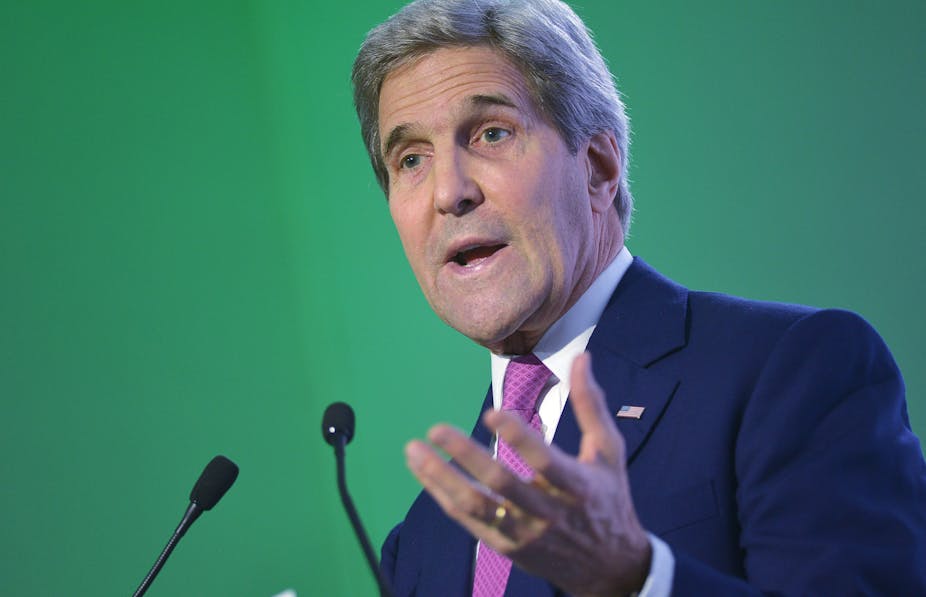The most surprising revelation here at the Paris climate conference has been the astonishing shift in the world of investors over the past 12 months. There is now unprecedented momentum towards participating in the transition to a low-carbon economy, and the view at the “big end” of the conference is that a strong agreement will provide an extra shove. It’s unstoppable now.
It’s not that investors and chief executives have had an ethical epiphany about climate change; it’s just that they can see where the world is headed, and it makes sense to be part of it rather than being stuck in the economy of the 20th century. As US Secretary of State John Kerry said yesterday: “While we’ve been debating, … the clean energy sector has been growing at an incredible rate.”
Contrast that with Australia, for instance, where the attitude of the business community has always been “we don’t want to be at the forefront of global action”. The old fossil fuel companies still have the dominant voice in the public debate and in the policy process. It may take another year for what’s happening across the world to sink in, but the complaint will increasingly become “we don’t want to be left behind”.
So what are the dimensions of this shift in business and investor sentiment? I wrote last week about how investors are running ahead of governments, as shown for example by the quiet revolution in the growth of green bonds, and by the Montreal Carbon Pledge under which large investors have committed to measuring and reporting on the carbon footprint of their portfolios. In a little over a year, this pledge has been signed by investors controlling more than US$10 trillion in assets.
More immediate abatement action is to be found in the so-called Science Based Targets initiative, under which 114 large corporations have pledged to reduce their emissions in a way consistent with the 2°C objective. Big corporations including Ikea, Coca-Cola, Dell, General Mills, Kellogg, NRG Energy, Procter & Gamble, Sony and Wal-Mart have already signed up and are implementing plans.
Dell, for example, has pledged to reduce emissions from its facilities and logistics operations by 50% by 2020 (relative to 2011 levels), and to reduce the energy intensity of its product portfolio by 80% by 2020.
These corporations have not decided that principles should outweigh profits; they have decided that, looking over the next several years, sustaining profitability requires that they shift to low-emission energy. One factor weighing on corporate minds is exposure to risk in energy markets, which are likely to be more volatile and uncertain partly because of the growing challenge posed to fossil energy.
Central bankers are now anxious that a rapid, structural shift in energy markets and the destruction of asset-value in some of the world’s biggest companies may disrupt the global financial system. As I reported, the governor of the Bank of England Mark Carney speaks of the need for an “orderly transition” to a zero-carbon economy.
This unprecedented business commitment feeds into, and is partially stimulated by, the Lima-Paris Action Agenda, which wound up yesterday and must be considered one of the standout successes of COP21. The number of mayors, governors, chief executives and investment managers who have arrived here to declare publicly their commitment has been unparalleled.
Yes, the message of this conference is that something big has shifted in the world.

